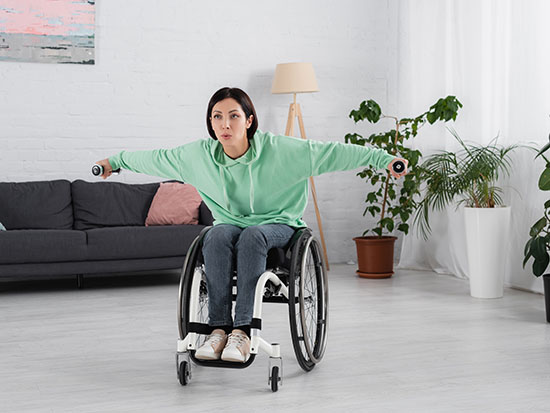 The University of Alabama at Birmingham Department of Physical Medicine & Rehabilitation (PM&R) has a long history in research led by our PM&R research faculty. Each one with a passion to contribute to the knowledge gained through research to improve the health, function, and quality of life of persons with disabilities.
The University of Alabama at Birmingham Department of Physical Medicine & Rehabilitation (PM&R) has a long history in research led by our PM&R research faculty. Each one with a passion to contribute to the knowledge gained through research to improve the health, function, and quality of life of persons with disabilities.
Researchers follow their passions in their search for funding opportunities. The funding is needed to conduct the research activities, and funding is competitive. So, a lot of work goes into writing a grant application to put together the best application to compete and, eventually, become a funded research project.
The research process takes a team effort before the grant application is submitted. The researcher often utilizes scientific and consumer advisors to help ensure the research aims to benefit persons with disabilities. An administrative associate is often essential to coordinate meetings, organize letters of support, and other support activities to smooth the application process. A business officer is needed to help the researcher plan the budget that meets the institutional and personnel needs to accomplish the planned grant activities.
The team grows even more once the research is funded. The researcher and administrative staff work together to submit the planned activities for Institutional Review Board (IRB) approval. IRB approval is needed to ensure the ethical and safe treatment of human subjects involved in the research. Research Specialists are often involved in screening participants to determine eligibility. They also might consent participants as well as conduct initial and follow-up interviews as part of the data collection process. A Clinical Research Coordinator or Post-Doc Fellow may be needed to collect samples, conduct testing, or other activities needed to conduct and complete most of the day-to-day research activities.
Dissemination of research outcomes is also a key part of research. Publishing the research outcomes in a journal is one way the researcher builds on the existing knowledge that benefits the quality of life of persons with disabilities by read by researchers and others who share similar interests. Researchers might also present research outcomes at a professional conference.
However, dissemination is often another team effort. A statistician might be needed to provide and supervise statistical analysis of the data collected during research activities. If the research is collaborative, other researchers may help with the publication. The project staff may contribute to the publication.
And UAB PM&R often extends the dissemination of research outcomes to inform persons with disabilities. While journal publications and conferences target professionals, knowledge translation targets the persons with disabilities who benefit from the research. Quick Reviews, for example, offer consumers an easy-to-understand summary of the research publications. Quick Reviews from the UAB Spinal Cord Injury Model System and UAB Traumatic Brain Injury Model System are available at the Model Systems Knowledge Translation Center.
“The researcher represents the project in the interaction with the university, funding agency, and other organizations and also bears ultimate responsibility for the complete execution of proposed research activities,” says Professor and Vice Chair of PM&R Research Yuying Chen, M.D., Ph.D. “But it takes a village for research to succeed and sustain. We are very grateful for the support from our department that has built a healthy and solid research infrastructure and continues to improve the support system to ensure success from grant preparation, submission, execution, and management of the grant to dissemination of the research findings to people who need them,” adds Chen.